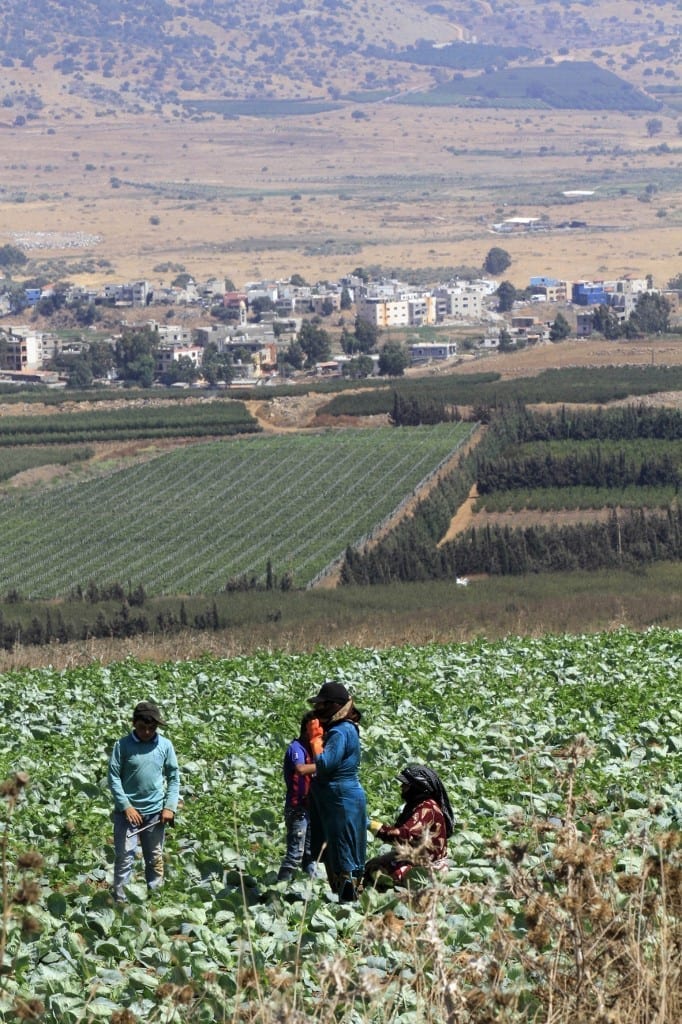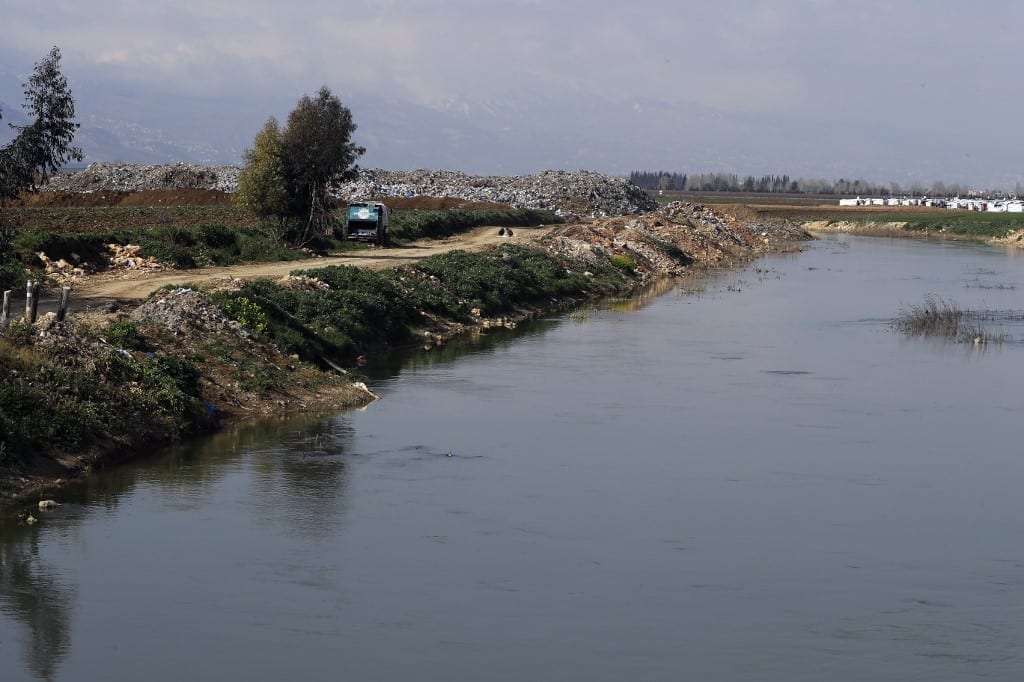In the agricultural jihad context, it’s useful to note the astronomical rise in the cost of any new agricultural investment in southern Lebanon, according to the exchange rate subsidized by Banque du Liban for agricultural inputs (3,950 Lebanese pound, per dollar). For example, the increase in the cost of bananas amounts to 133 percent, tobacco to 121 percent, tomatoes (inside agricultural tents) to 191 percent, and watermelons (in an open field) to 179 percent.
So, Nasrallah’s call for “agricultural jihad” is not far from what many officials have said before. It is a clear indication of the authorities’ lack of solutions, the same authorities that once promised to set the exchange rate, now with the dollar reaching a rate of nearly 10,000 Lebanese pounds.
These figures were published on the Facebook page of Kanej Hemadi, professor of economics at the Lebanese University, in conjunction with calls for returning to farming, and searching for a solution to the collapse of the trade balance and state bankruptcy through the cultivation of balcony and home gardens. These calls for using agriculture to confront the economic collapse are similar to the approach adopted by Hezbollah with its supporters to address any major issues, which is through imposing a religious obligation for them.
So, Nasrallah’s call for “agricultural jihad” is not far from what many officials have said before. It is a clear indication of authorities’ lack of solutions, the same authorities that once promised to set the exchange rate, now with the dollar reaching a rate of nearly 10,000 Lebanese pounds. Now they want to dispel the fog they’ve caused with a rose in a garden, or with a watercress package at best.
These calls have forgotten or ignored that pollution is spread along the tributaries of the Litani River, which originates in the Aliq Springs, west of the city of Baalbek (the stronghold of resistance) in the Bekaa Valley, and ends in Al Qasimia in Tyre. The Litani basin is about 2110 square kilometers (one fifth of Lebanon’s total area), and it includes the largest agricultural areas in Lebanon. So these cultivated areas, the ones that are supposed to get us out of the crisis are often irrigated with polluted and carcinogenic water!
We cannot forget the images of apple farmers in various regions throwing their wasted crops on their lands every year, after failing to export them, in the absence of the state. The same state in which the officials now want to ease the catastrophe they brought upon us, telling us to “Go and plant,” or “Go east or west” towards export and import. Thus, overnight, agriculture becomes a good thing when some official says so because he is stuck in a corner and does not have another solution, while no one had been paying any attention to the screams of farmers and their losses that have been going on for years. Hezbollah has been in charge of the Ministry of Agriculture for many years, and throughout those years and up until today, the suffering of farmers has not stopped for a single day.
Ali Taha, a farmer from Akkar, summarizes the story to ‘Daraj:’ “The problem now is no longer exporting, it’s more than that. The problem is how the farmer would secure seeds, medicines, and pesticides.” “If the dollar situation continues like this, no one will cultivate their land next year,” he added.

Rural Spirit
Hemadi comments on the calls to return to agriculture that have recently increased, and are being lightly thrown around, saying: “Agriculture is not a hobby, it is serious work that requires effort and perseverance.”
Hemadi explains to ‘Daraj’ that “The agricultural sector suffers from many problems that need real solutions so agriculture can develop, guarantee food security, and increase profits. The troubles begin with land ownership, then the cooperatives and their wrong policies, and finally the difficulties of drainage among other issues. Furthermore, agricultural inputs; like irrigation systems and equipment, pesticides, chemical fertilizers, and imported medicines, are now much more expensive with the exchange-rate. The investment’s cost has increased considerably and can only be offset by export, which creates a major problem with regard to the domestic need that agriculture cannot meet. One third of the agricultural production’s costs are dependent on the dollar, as it is one of the external inputs, and thus costs increase with the dollar rising. Moreover, 70% of costs, such as workers’ wages, also increased, though at lower rates of (15%).”
“The cost of investment has increased a lot, because a large part of it is pegged to the USD, such as the greenhouses and irrigation systems (dripping). If such advanced technologies are not used, workers will have no choice but to use less sophisticated, less expensive, and perhaps less feasible methods, taking into account that not using the drip irrigation system means using large amounts of water for instance, and farmers may resort to cheaper, but contaminated or harmful, agricultural medicines,” Hemadi added. “The cost of investment has increased a lot, because a large part of it is pegged to the USD, such as the greenhouses and irrigation systems (dripping). If such advanced technologies are not used, workers will have no choice but to use less sophisticated, less expensive, and perhaps less feasible methods, taking into account that not using the drip irrigation system means using large amounts of water for instance, and farmers may resort to cheaper, but contaminated or harmful, agricultural medicines,” Hemadi added.


He asserts that “Lebanese agriculture has substantial capacity at the rural level in particular, and it has already protected local communities ―especially during the Syrian war and asylum― by employing a significant number of labor force and meeting a part of the domestic demand for products. Agriculture may not be able to reimburse bank losses or redress the balance of payments, but it can create a type of movement and dynamism in rural areas.”
Green Lebanon
After Nasrallah’s speech, the name of the Facebook page “I have an alternative” ―which was promoting Iranian and Syrian goods at cheaper prices than domestic products― was changed. The page’s admins decided to respond immediately to the Secretary General’s call and changed its name to “agro-industrial revival (I have an alternative)” explaining that “the group’s vision has not changed, we are still fighting the same war, and our Master’s speech will turn into an action plan right the next day..”
However, this vigor that has suddenly filled the “Master’s” supporters’ is hard to turn into an action plan that goes beyond balconies and rooftops. “E. A.,” an engineer from Bekaa who preferred not to mention his name, mentions, “Green Lebanon, with its Bekaa valley, was once known as ‘The Silos of Rome,’ that exported its cedar to Solomon’s Temple as well as to build Phoenician ships. Later on, it became famous for breeding silkworms and the silk industry. Nothing remained of its agricultural success except in history books and some poetry.”
E.A. talks about internal obstacles to the agricultural sector development, saying that “The sector suffers from the state’s weak role in agricultural guidance, and in directing farmers towards alternative agriculture, which provides better productivity and higher profit for the farmers. Moreover, agriculture continues to adopt traditional techniques, which are also expensive, especially for small-scale farmers. Furthermore, there is a lack of fair distribution of profits between the merchant and the farmer, as the latter does all the agricultural work and gets a small profit compared to his effort, his work, and his investment. The sector also suffers from the absence of real plans to distribute the agricultural production and link it to the agricultural and food industries, in addition to the weak support given to the Lebanese farmer by the state, in the form of agricultural requirements such as; pesticides, seeds, and seedlings.”
The agricultural engineer addresses the state that resigned from its oversight role in monitoring standards of export agreements, especially when about 45% of our agricultural exports go to the Persian Gulf, which now adopts European and international standards. Moreover, there is inaction in marketing Lebanese agricultural production in countries of Lebanese diaspora, especially with Lebanon’s migrants potential, while the Lebanese farmer faces intense competition with imported products.
After all, a single investigation can never do justice to the suffering of the agricultural sector, and a few pages may not be enough to talk about the annual agricultural disasters, but it is an attempt to respond to these dull calls to head east and cultivate balconies and lands. We are, all, in a sinking boat that requires real plans to save it, not a mere pot of mint!






